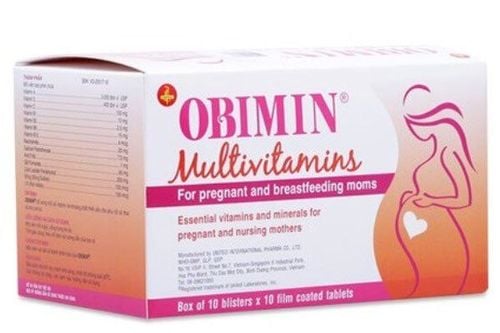Methylcobalamin capsules is a form of vitamin B12 that is easily absorbed by the body. This drug is primarily used to enhance the health of the liver, brain, and central nervous system… The following article will help you better understand the uses of Methylcobalamin capsules 1500mcg.
1. What is Methylcobalamin capsules 1500mcg?
Composition: Methylcobalamin 1500mcg
Category: Vitamins and minerals
Dosage form: Soft capsule
Prescription required: Prescription-only medicine
Manufacturer: Capsule - India
Methylcobalamin is available in various forms and dosages:
- Injectable solution, nasal gel, oral tablets, nasal spray, powder, sublingual tablets, sustained-release tablets;
- Methylcobalamin 100 mcg/ml; 100mcg/ml; methylcobalamin 500mcg/0.1 ml; 100mcg; 250 mcg; methylcobalamin 500mcg; 1000mcg; 50mcg; 25 mcg/0.1 ml; 2 mcg/ml; 1000 mcg with sodium salcaprozate; 2500mcg; 5000mcg.
2. Uses of Methylcobalamin capsules 1500mcg
Methylcobalamin is a form of vitamin B12 that is easily absorbed by the body. This drug is primarily used to improve the health of the liver, brain, and central nervous system.
Methylcobalamin plays a crucial role in maintaining visual health.
2.1 Indications
- Peripheral neuropathies: peripheral neuropathy due to diabetes, alcoholism, or medications.
- Nerve pain from occupation or exercise.
- Prevention of oxidation, especially preventing atherosclerosis and toxicity from free radicals and chemicals.
- Megaloblastic anemia due to vitamin B12 deficiency.
2.2 Dosage and Administration of Methylcobalamin capsules 1500mcg
Administration:
Use methylcobalamin as directed by your doctor or as directed on the label. Do not use in larger or smaller amounts or for longer than recommended.
Methylcobalamin can be taken with or without food. It is best to take methylcobalamin with a full glass of water.
For sublingual tablets, place the tablet under your tongue when using. For tablets, swallow the tablet whole and do not chew or crush the extended-release tablet.
Dosage:
The information provided cannot replace the advice of medical professionals. Always consult your doctor or pharmacist before deciding to use the drug.
Dosage for adults:
Dosage for adults to reduce stress and support the brain:
Use a dose of no more than 25mg per day.
Dosage for adults with acute neuropathy:
You can use a dose of 40mg per day under the supervision of a doctor.
Dosage for adults to protect the body from aging problems:
An appropriate dose is 1mg per day. This dose is often combined with a similar dose of folic acid and pyridoxine.
Dosage for adults with vitamin B12 deficiency:
You take 100mg orally each day.
Dosage for children:
The dosage has not yet been established for children under 12 years of age. It may have adverse effects on children. Therefore, you need to understand the safety of the drug before use. You can consult your doctor or pharmacist for more advice.
3. Side Effects of Methylcobalamin
Common side effects when taking methylcobalamin include: headache, itching, swelling, anxiety, restlessness, and involuntary or uncontrolled movements.
Serious side effects include: hypokalemia, congestive heart failure, blood clots in the arms and legs, life-threatening allergic reactions, and pleural effusion.
Not everyone experiences these side effects. There may be other side effects not listed. If you have any questions about side effects, please consult your doctor or pharmacist.
4. Precautions before using methylcobalamin
Before taking methylcobalamin, you should:
- Inform your doctor and pharmacist if you are allergic to the drug or any other ingredients in the formulation you are using. These ingredients are detailed in the drug information leaflet.
- Inform your doctor if you are allergic to any drugs, including foods, dyes, preservatives, and animals.
- Avoid use in children under 6 years of age unless otherwise directed by a doctor.
- Use with caution in the elderly.
- Use with caution in individuals with any medical conditions such as optic neuritis, polycythemia, or frequent infections.
Note if you are pregnant or breastfeeding:
There have not been adequate studies to determine the risk of using this drug during pregnancy or breastfeeding. Before taking the drug, always consult your doctor to weigh the benefits and risks.
According to the U.S. Food and Drug Administration (FDA), this drug belongs to pregnancy category C (C = May pose a risk).
In case of emergency/overdose:
In case of emergency or overdose, call the emergency center at 115 or go to the nearest local health station immediately.
Symptoms of overdose include nausea, vomiting, headache, dizziness, fainting, arrhythmia, kidney damage, and other symptoms.
Missed dose:
If you miss a dose, take it as soon as possible. However, if it is close to the next dose, skip the missed dose and take the next dose as scheduled. Do not double the prescribed dose.
5. Drug Interactions
What drugs interact with methylcobalamin?
Drug interactions can change how your medication works or increase your risk for serious side effects. This document does not contain a complete list of all possible drug interactions. Keep a list of all the medications you take (including prescription, over-the-counter, and herbal products) and show it to your doctor or pharmacist. Do not start, stop, or change the dosage of any medication without your doctor's approval.
Some drugs that may interact with methylcobalamin include:
- Antibiotics (such as penicillin, cephalexin, ciprofloxacin), cholestyramine, colchicine, colestipol, metformin, nitrous oxide
- Nonsteroidal anti-inflammatory drugs (NSAIDs) (such as ibuprofen), para-aminosalicylic acid, potassium chloride, or sulfasalazine
- Fluorouracil or nitrates (such as nitroglycerin)
- Barbiturates (such as phenobarbital), carbamazepine, hydantoins (such as phenytoin), primidone, pyrimethamine, or valproic acid
How do food and alcohol affect methylcobalamin?
Food or alcohol may interact with methylcobalamin, changing how the drug works or increasing your risk for serious side effects. Alcohol increases the risk of drowsiness when taken with methylcobalamin. Talk to your doctor or pharmacist about any foods that may interact with the medication before taking methylcobalamin.
Avoid using tobacco products and alcohol while taking methylcobalamin.
What health conditions affect methylcobalamin?
Your health conditions may affect the use of this drug. It may change how the drug works or increase your risk for serious side effects. Tell your doctor and pharmacist if you have any medical conditions, especially:
- Optic neuritis
- Urinary bleeding
- Infection
- Polycythemia (a blood disorder)
- Anemia
- Liver problems
- Kidney stones
- History of ulcers
Please dial HOTLINE for more information or register for an appointment HERE. Download MyVinmec app to make appointments faster and to manage your bookings easily.













